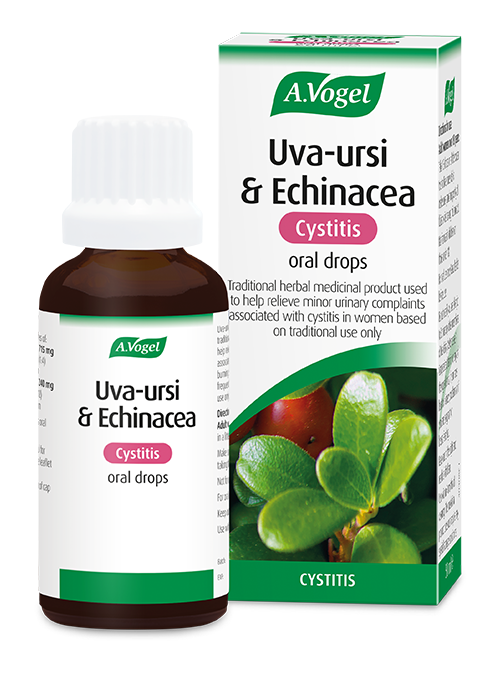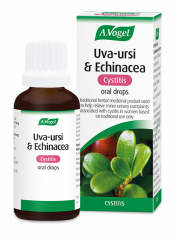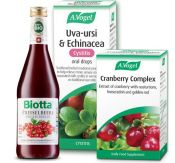1. Dehydration

As the summer heat picks up it’s easy to fall short on our water intake and we are then put at risk of becoming dehydrated. Remember, in warmer weather we sweat more in a bid to cool down so it’s more important than ever to up your water intake and most people will require at least 2l of plain, still water at the height of summer. Your urine needs to be kept suitably diluted in order to keep your bladder free from irritation and to stop concentrated urine becoming the perfect breeding ground for bacterial infections.
Also, your fluid levels will directly affect the movement of waste through your gut. You may assume this won’t have much impact on your urinary tract symptoms but, in reality, this could certainly make you more susceptible to infections. The state of your bowel can directly impact your bladder as it’s one of the main routes for infections.
Of course, your hydration levels can also take a bit of a hit as a result of changing dietary habits and indulging in extra salty snacks or an alcoholic tipple or two. But, it’s summer, right? Whilst it’s perfectly acceptable to enjoy yourself, you might just need to take some extra precautions if you want to stay free of cystitis.
How to overcome it
Aim to drink 2l of plain, still water on top of any other drinks you’re having – and that includes fizzy water, juices or warm beverages. Jazzing up your water with ice, fresh fruit slices or even a paper umbrella may make you feel more at home in the summer heat – whatever keeps you sipping!
2. Warmer temperatures

As the summer temperatures rise, you’re more likely to feel warmer, and down below can be no exception. Whilst sweating is a natural process which we don’t want to squash, damp or moist conditions are bacteria’s perfect habitat and, as these come about, it can put us more at risk of infections.
How to overcome it
Choosing your undies carefully, especially in summer, is a top tip from me. Opt for more natural materials such as cotton rather than synthetic alternatives which make everything a little less breathable!
Although your favourite summer outfits may leave you reaching for skimpier underwear, if you’re particularly susceptible to infections, just consider the impact thongs could be having - they could be making the transfer of bacteria more likely.
Finally, although you may be feeling warmer or a little stickier by the end of the day, this doesn’t mean you have to go overboard with hygiene practices. Harsh soaps will only risk upsetting the delicate pH and balance of bacteria that exist down below, so just stick to your normal routines and toiletries as much as possible. Save up smaller bottles to transfer your favourites whilst travelling, rather than switching to hotel toiletries which may be harsher on your skin.
3. Summer diet
 Whilst sugary sweet cocktails are tempting when the sun’s shining, sugar is unfortunately one of main culprits that risk upsetting the balance of bacteria down below. Pro-inflammatory foods or drinks are also ones to watch if you are prone to irritation, so consider your intake of caffeine, alcohol, fizzy drinks, meat or lots of processed foods.
Whilst sugary sweet cocktails are tempting when the sun’s shining, sugar is unfortunately one of main culprits that risk upsetting the balance of bacteria down below. Pro-inflammatory foods or drinks are also ones to watch if you are prone to irritation, so consider your intake of caffeine, alcohol, fizzy drinks, meat or lots of processed foods.
How to overcome it
Whilst including some treats during the summer holidays is to be expected, make sure to incorporate habits that will help protect against cystitis at the same time:
Firstly, include a variety of brightly coloured fruit and veg which are nutrient rich plus high in fibre, both of which are protective against recurrent infections.
But also start your day with a tall glass of water and top up with the same in between your meals throughout the course of the day.
4. Summer loving

Summer time is often a time to relax and enjoy some well-deserved chill-time with loved ones. However, you might worry that more frequent bedroom habits could be impacting your frequency of infections!
Whilst honeymoon cystitis is a real phenomenon, there are protective habits to help you overcome the symptoms and it certainly shouldn’t put a dampener on your summer fun.
How to overcome it
Read more on my blog on ‘Honeymoon cystitis’ if you’re worried about the effects of some summer loving!
Keeping up with some helpful habits such as washing regularly or emptying your bladder after sex could help protect against any unwanted discomfort. If thrush or any other intimate problems tend to trouble you, then taking a protective dose of a female probiotic is another top tip.
5. Pool time quirks

If you’re lucky enough to be jetting off abroad this summer you may be spending some time in a swimming pool; cooling off and relaxing. However, harsh chemicals such as chlorine or failing to dry off properly after a quick dip could leave you feeling uncomfortable and more prone to infection.
However, don’t fret, there’s plenty you can do to help keep you feeling fresh without leaving you feeling left out of all the fun!
How to overcome it
Whilst the chemicals added to pool water are pretty unavoidable, be sure to take a shower in fresh water afterwards to help clear your skin and swimwear.
Next, be sure to dry off and even change your undergarments to keep everything dry down below. Clothes will dry quickly in the sun so having a quick change throughout the day shouldn’t be too problematic. However, despite your best efforts, if your new regime has left you feeling a little uncomfortable, my advice is to have a bottle of Uva-ursi drops on hand in your toiletry bag.
My top tip
Take A.Vogel's Uva-ursi & Echinacea drops 5 times daily to help overcome symptoms of cystitis. You remain vulnerable after a bout of cystitis, so it's important to prevent reinfection by following good hygiene practices.
These drops can be taken for up to 6 weeks at a time, but you should talk to your doctor if your symptoms do not improve after 7 days.










